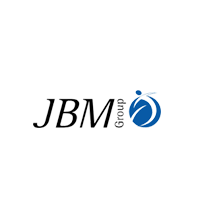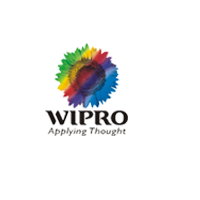The C programming course
This track starts through a mild preamble to C however rapidly moves on to elucidate several of its most puzzling traits: the whole thing from C's 'scoping' regulations to the inquisitive link flanked by arrays and memory addresses.
C is one of the significant programming languages of all. It is worn to program desktop applications, compilers, gears and utilities and even hardware devices. This course will educate you to program the C language from the ground up.
You will be taught all from the very rudiments of programming right from beginning to the complexities of pointers, addresses and File IO. The C language is speedy and proficient – but it can be firm to learn, except you use this course.
By the end of the course you will have a deep understanding both of the C language itself and also of the underlying 'architecture' of your computer.
Topics covered:
- highly developed topics such as memory allocation, the stack and heap, and binary file IO
- The ground rules of programming – from the ground up
- The nitty-gritty details of the C language
- How to program on a Mac or on Windows
Recommended to:
- Anyone who needs to master C as a basis for using C++ or Objective-C
- Programmers of other languages who want a fast way into C
- fresher’s to programming
- starters – if you've never coded before, you can find out C step by step
- Anyone who needs to program C++ or Objective-C. The C language is the place to start
- Programmers switching to C from some supplementary language such as Java, Ruby or Python
- Cross-platform developers – there are C compilers for all major operating systems
Course Syllabus
C Basics
- History of C
- Characteristics of C
- C Program Structure
- Variables
- Defining Global Variables
- Printing Out and Inputting Variables
- Constants
- Arithmetic Operations
- Comparison Operations
- Logical Operators
- Order of Precedence
Conditionals
- Conditionals
- The if statement
- The? Operator
- The switch Statement
Looping and Iteration
- The for statement
- The while statement
- The do-while statement
- Break and continue
Arrays and Strings
- Defining, initializing and using arrays
- Single and Multi-dimensional Arrays
- Arrays of Characters and Strings
- Arrays and pointers
- Strings
Functions
- Role of Functions
- Passing arguments to functions
- Returning values from functions
- Recursive functions
- Call back functions
- Implications on Stack
- Pass by value / reference
- Passing Arrays to functions
String Handling :
- Basic String handling functions
- String Searching
- Character Conversions and testing :
- Memory Operations:
Structures and Unions
- Structures
- Nested Structures
- Array of Structures
- Allocation of memory and holes
- Unions
Further Data Types
- Coercion or Type-Casting
- Enumerated Types
- Static Variables
Dynamic Memory Allocation & Dynamic Structures
- Malloc, Sized, and Free
- Calloc and Realloc
Advanced Pointer Topics
- The purpose of pointers
- Defining pointers
- The & and * Operators
- Pointer Assignment
- Pointers with functions
- Pointer Arithmetic
- Advanced pointer types
- Pointers to functions
- Pointers to String
- Pointers and Dynamic memory
- Pointers and Structures
- Common Pointer Pitfalls
- Not assigning a pointer to memory address before using it
- Illegal indirection
Storage Classes
- Scope
- Internal
- External
- Automatic
- Static
- Scope and extent of parameters
Low Level Operators and Bit Fields
- Bitwise Operators
- Bit Fields
- Bit Fields: Practical Example
- A note of Caution: Portability
The C Processor
- #define
- #undef
- #include
- #if – conditional inclusion
- Preprocessor Compiler Control
- Other Preprocessor Commands
Integer Functions, Random Number
- String Conversion :
- Arithmetic Functions
- Random Numbers
- String Conversion
Mathematics:
- Math Functions
- Math Constants
Input and Output (I/O) :
- Reporting Errors
- perror()
- errno
- exit()
- Streams
- Predefined Streams
- Redirection
- Basic I/O
- Formatted I/O
- Printf
- Scanf
- Files
- Reading and writing files
- Sprintf and sscanf
- Stream Status Enquiries
Data Structures
- Linked Lists
- Stacks & Queues
- Binary Tree
Sorting & Searching Techniques
- Insertion Sort
- Merge Sort
- Quick Sort
Writing Larger Programs
- Header Files
- Advantages of Using Several Files
- How to Divide a Program between Several Files
- Organization of Data in each file
- The Make Utility
- Make Programming
- Creating a make file
- Make Macros
Course Information
- Class Start: Every Monday, Wednesday & Friday
- Course Duration: 60 hours(40 hours for Software Training & 20 hours for Project Handling)
- Student Capacity: 8-12 students per batch
- Certification: For Software Training(1) & For Project Handling(1)
-
Course Benefits Include:
- Industrial Visit
- Tool Kit
- Lifelong Support
- Placement Guaranteed
- Project Handling
- Resume Writing
- Moneyback Guaranteed








